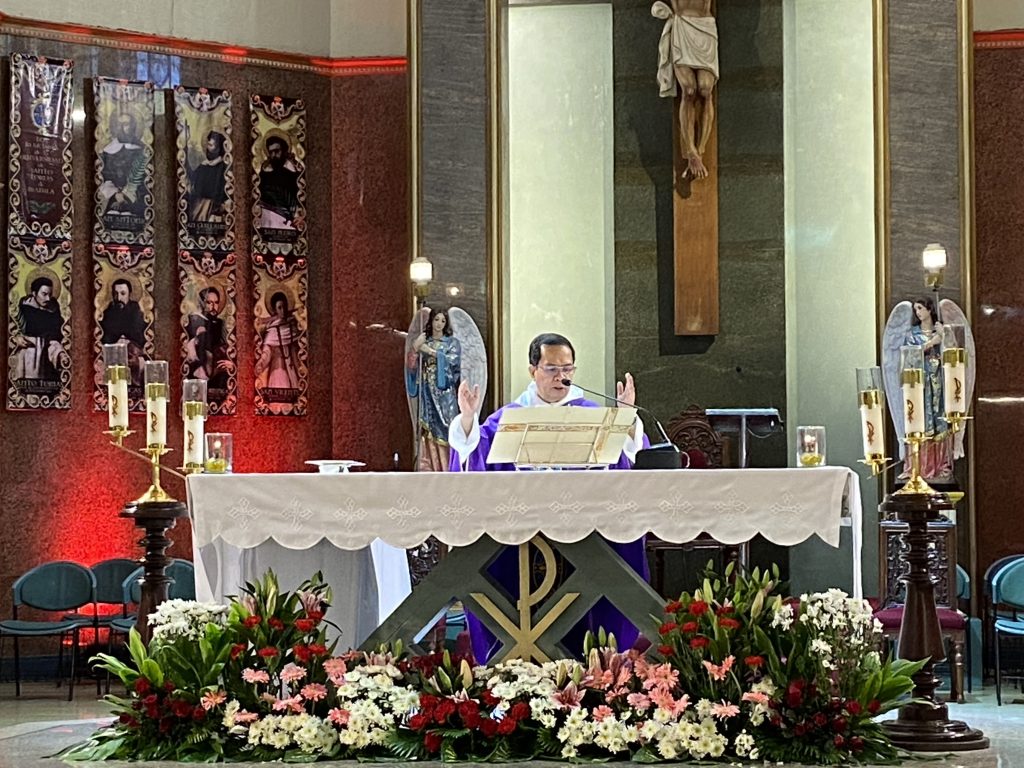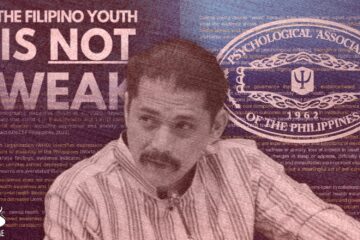
PRAYERS STRENGTHEN people’s connection with the departed because of the unwavering “signal of faith” bestowed by God, UST Vice-Rector for Religious Affairs Fr. Pablo Tiong, O.P. said.
In his homily during the mass for all departed Thomasians, Tiong said it is in God’s plan to preserve the faithful’s connection with their deceased loved ones through prayers.
“Even if we have sinned through the original sin, the connection between prayer and faith does not end in death…The signal of faith does not have a dead spot as we can pray anywhere,” he said on Wednesday, Nov. 8, at the Santisimo Rosario Parish church.
“Let us always return to God. Let us strive to strengthen our faith. The closer we are to the Lord, the more effective our prayers are,” he added.
The departed, Tiong said, are not mere memories as they would always bear a name and an identity as God’s creation. He emphasized that death does not diminish the value of a person.
“Even if a person has died, even if we know that he is no longer on earth, one created in the image of God is eternal,” he said.
While people dedicate All Saints’ Day and All Souls’ Day to the departed, Tiong reminded Thomasians to pray throughout the year. He said mentioning a person’s name is enough and that one is not required to be close to who he is praying for.
“Our connection with each other is constant, even if we just recall their names (the departed)…The signal remains strong, so our prayers strengthen our faith through the love of God,” the Dominican priest said.
The mass was organized by the Santisimo Rosario Parish church, the Office of the Vice-Rector for Religious Affairs and the Center for Campus Ministry. It was part of the University’s series of masses held to remember the departed. F — C.J. Ruga




Another for your bookshelf, a Widows Cry by Jamie Pulos-Fry, encourages us to take a better stance towards widows and the poor and begin imagining a just Christian world that cares for them. The church has always followed the teachings of Christ, being an open house that accepts the marginalized and the oppressed. This commitment to charity and justice stems from the core values of Christianity–love, compassion, and service to others.